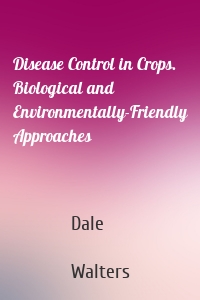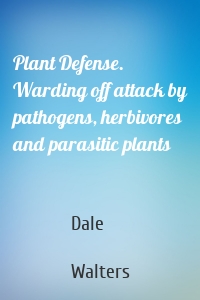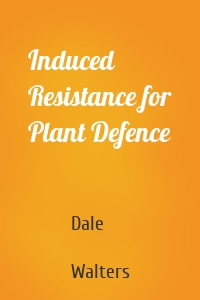Dale Walters
3 кн.
Disease Control in Crops. Biologica...
The control of diseases in crops is still largely dominated by the use of fungicides, but with the increasing incidence of fungicide resistance, plus mounting concern for the environment resulting from excessive agrochemical use, the search for alternative, reliable methods of disease control is gaining momentum. The purpose of this important book is to examine the development and exploitation (or potential for exploitation) of a range of non-chemical approaches to disease control, with a focus...
| Автор | Dale Walters |
Plant Defense. Warding off attack b...
Plants are sources of nourishment for thousands of fungi, bacteria, invertebrates, vertebrates, and other plants. Plants possess a truly remarkable diversity of mechanisms to fend off attackers and recent research has shown just how complex and sophisticated these defense mechanisms can be. Plant Defense provides comprehensive coverage of the range of different organisms that plants need to fend off, describes how plants coordinate their defenses against multiple attacks, explains the evolution...
| Автор | Dale Walters |
Induced Resistance for Plant Defenc...
Plant diseases worldwide are responsible for billions of dollars worth of crop losses every year. With less agrochemicals being used and less new fungicides coming on the market due to environmental concerns, more effort is now being put into the use of genetic potential of plants for pathogen resistance and the development of induced or acquired resistance as an environmentally safe means of disease control. This comprehensive book examines in depth the development and exploitation of induced...
| Автор | Dale Walters |




